Following two years of insufficient international cooperation in dealing with the COVID-19 pandemic, 2022 brought the return of war and a further intensification of geopolitical rivalries. Are there still prospects for diplomacy, or will things need to get even worse before they can get better?
PS Quarterly regularly features predictions from leading thinkers and uniquely positioned commentators on a topic of global concern. In this issue of PS Quarterly, Project Syndicate commentators offered their insights in response to the following proposition:
“After a year marked by war and geopolitical conflict, peacemaking and diplomacy will stage a recovery in 2023.”
I cannot predict what will happen in Ukraine. But if the threat to use nuclear weapons leads to the actual use of them, the consequences will be catastrophic beyond description. By improving the capacity of their arsenals, deploying new weapons, and maintaining nuclear first-use policies – all the while voicing aggressive threats – some nuclear-weapons states are bringing us dangerously close to the brink. By adopting policies barring first use of nuclear weapons, NWSs would help avoid a disaster. Such a move would be consistent with US President Joe Biden’s presidential campaign, and it would reinforce the shift from overemphasizing military nationalism to stressing global human security and cooperation.
More broadly, a human-security approach is also necessary to address climate change, marine protection, public health, and biodiversity loss. Science compels this change. We cannot continue to place humanity at risk, and we must never forget that once good-faith negotiations commence, unexpected progress can happen. That is what ended three civil wars in Central America in the 1980s – in Guatemala, El Salvador, and Nicaragua – when few believed that it was possible. I knew it was possible, and so I worked hard to help make peace come to pass. The house of peace does not construct itself. We are its carpenters.
The risk of nuclear war is the greatest it has been for many years, and the fear of nuclear Armageddon has returned to the forefront of public consciousness. But in all the 2022 discussions about whether smaller, so-called tactical nuclear weapons might be used, very little attention was devoted to the devastating impact that even a low-yield detonation would have on people and the environment. This is contributing to the erosion of the nuclear taboo. Russia’s actions in 2022 revealed that nuclear weapons are not being used to maintain security and stability through effective deterrence, but rather to coerce, intimidate, and facilitate illegal aggression. Looking ahead, there is a growing danger that others will emulate the precedent that Vladimir Putin has set.
The risks are great, but there is hope. The UN Treaty on the Prohibition of Nuclear Weapons came into force in 2021 and now has 91 signatories and 68 ratifications. This treaty puts nuclear weapons in the same category as biological weapons and antipersonnel landmines, which are shunned by most countries and prohibited under international law. Russia’s nuclear threats have focused minds, brought ordinary people onto the streets in protest, and prompted more governments to express revulsion at the idea of using nuclear weapons. In 2023, more countries will join the TPNW, strengthening the taboo against nuclear weapons and moving us closer to ridding the world of this existential threat.
A year marked by the return of warfare on European soil has cast doubt on world leaders’ ability to prevent global instability and growing inequalities. In the face of blatant violations of international law, it is impossible not to call attention to the failures of peacemaking institutions. The shortcomings of diplomacy point to the need for radical systemic change. But most world leaders nowadays fail to recognize this need, and I believe that only a new generation of politicians can break the gridlock. To reinvigorate sustainable, effective peacemaking requires innovative solutions. Business as usual is bound to fail when it comes to addressing the complex issues of climate change, increasing poverty, and armed conflict.
In Europe, the United States, Africa, and other places where my work brings me, I have seen growing momentum toward including new and marginalized voices in decision-making positions. Political leadership incubators – that is, organizations supporting activists and community leaders to become active politicians – are a new source of hope for those of us who believe that better, more conscientious leadership is needed to address today’s mounting challenges.
In today’s gloomy context, the return of peacemaking and diplomacy in 2023 might seem like wishful thinking. But by investing in new political talent, we just might be able to close the gap between the leaders we have and the leaders we need.
Despite a flourishing of intra-regional diplomacy in the Middle East in the past year, 2023 is likely to be marked by conflict and strife as tensions between the US, Russia, and China continue to rise. A key factor driving this state of affairs is the transition toward multipolarity – and America’s efforts to reverse the trend, rather than adjusting to it and recognizing that its primacy cannot be sustained indefinitely.
The attempt to divide the world according to artificial constructs – “democracies v. autocracies” – will intensify. Despite other countries’ efforts to stay out of the confrontation between the great powers – and to keep those conflicts out of their own regions – the politics of the Middle East will increasingly be colored by the competition between Washington, DC, and Beijing. At some point, perhaps there will be a realization that tomorrow’s challenges require shared leadership, rather than the dominance of one power over all others. That realization, however, will not come in 2023.
I disagree with the proposition. It is impossible to predict what will happen with the Russia-Ukraine war in 2023, but the risks of escalation are real and high. Moreover, tensions in other parts of the world, particularly East Asia, also could spiral, even if the war in Ukraine ends.
In fact, the Sino-American strategic rivalry will most likely escalate further once a more stable environment is restored in Ukraine, because policymakers and strategists in Washington, DC, will redirect their attention and resources toward confronting China. Most importantly, the war has poisoned key relationships among major countries and exposed deep and wide fissures in the international order. That means we have entered a different and far more dangerous era – an era that certainly will not end in 2023.
I fear that the climate for peacemaking and diplomacy will not improve in 2023. Vladimir Putin’s invasion of Ukraine was based on the miscalculation that Ukraine was part of the “Russian world” and not a legitimate state. He has now unwittingly helped to forge a stronger Ukrainian patriotism. But it is difficult to see Putin backing down or Ukraine giving up its territory.
In Asia, Chinese President Xi Jinping has consolidated his power and reiterated his intention to return Taiwan to Beijing’s control. As China’s economic growth slows, the Communist Party is increasingly turning to nationalism and “wolf warrior” diplomacy as a source of legitimacy. Neither of these situations looks promising for diplomacy.

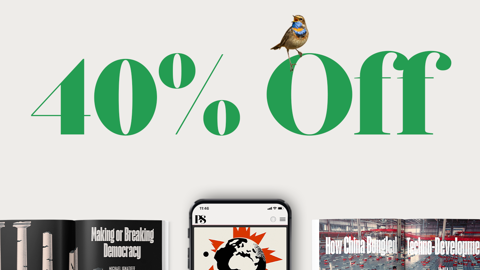
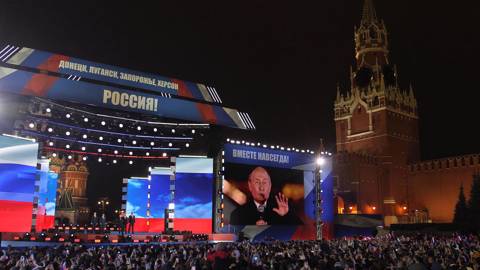
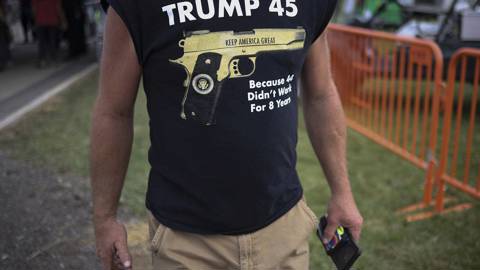
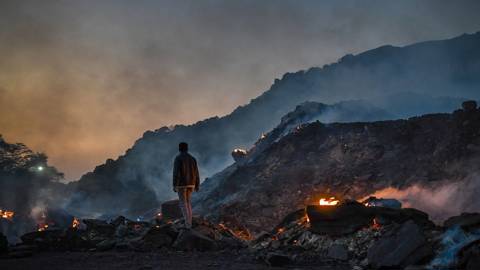
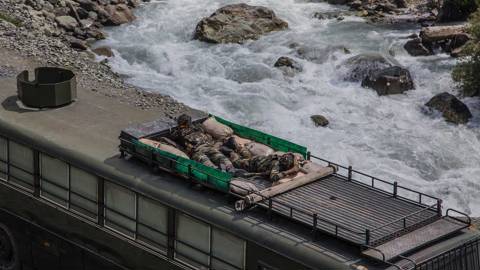
PS Quarterly regularly features predictions from leading thinkers and uniquely positioned commentators on a topic of global concern. In this issue of PS Quarterly, Project Syndicate commentators offered their insights in response to the following proposition:
“After a year marked by war and geopolitical conflict, peacemaking and diplomacy will stage a recovery in 2023.”
Oscar Arias
I cannot predict what will happen in Ukraine. But if the threat to use nuclear weapons leads to the actual use of them, the consequences will be catastrophic beyond description. By improving the capacity of their arsenals, deploying new weapons, and maintaining nuclear first-use policies – all the while voicing aggressive threats – some nuclear-weapons states are bringing us dangerously close to the brink. By adopting policies barring first use of nuclear weapons, NWSs would help avoid a disaster. Such a move would be consistent with US President Joe Biden’s presidential campaign, and it would reinforce the shift from overemphasizing military nationalism to stressing global human security and cooperation.
More broadly, a human-security approach is also necessary to address climate change, marine protection, public health, and biodiversity loss. Science compels this change. We cannot continue to place humanity at risk, and we must never forget that once good-faith negotiations commence, unexpected progress can happen. That is what ended three civil wars in Central America in the 1980s – in Guatemala, El Salvador, and Nicaragua – when few believed that it was possible. I knew it was possible, and so I worked hard to help make peace come to pass. The house of peace does not construct itself. We are its carpenters.
Beatrice Fihn
The risk of nuclear war is the greatest it has been for many years, and the fear of nuclear Armageddon has returned to the forefront of public consciousness. But in all the 2022 discussions about whether smaller, so-called tactical nuclear weapons might be used, very little attention was devoted to the devastating impact that even a low-yield detonation would have on people and the environment. This is contributing to the erosion of the nuclear taboo. Russia’s actions in 2022 revealed that nuclear weapons are not being used to maintain security and stability through effective deterrence, but rather to coerce, intimidate, and facilitate illegal aggression. Looking ahead, there is a growing danger that others will emulate the precedent that Vladimir Putin has set.
The risks are great, but there is hope. The UN Treaty on the Prohibition of Nuclear Weapons came into force in 2021 and now has 91 signatories and 68 ratifications. This treaty puts nuclear weapons in the same category as biological weapons and antipersonnel landmines, which are shunned by most countries and prohibited under international law. Russia’s nuclear threats have focused minds, brought ordinary people onto the streets in protest, and prompted more governments to express revulsion at the idea of using nuclear weapons. In 2023, more countries will join the TPNW, strengthening the taboo against nuclear weapons and moving us closer to ridding the world of this existential threat.
SPRING SALE: Save 40% on all new Digital or Digital Plus subscriptions
Subscribe now to gain greater access to Project Syndicate – including every commentary and our entire On Point suite of subscriber-exclusive content – starting at just $49.99.
Subscribe Now
Omezzine Khelifa
A year marked by the return of warfare on European soil has cast doubt on world leaders’ ability to prevent global instability and growing inequalities. In the face of blatant violations of international law, it is impossible not to call attention to the failures of peacemaking institutions. The shortcomings of diplomacy point to the need for radical systemic change. But most world leaders nowadays fail to recognize this need, and I believe that only a new generation of politicians can break the gridlock. To reinvigorate sustainable, effective peacemaking requires innovative solutions. Business as usual is bound to fail when it comes to addressing the complex issues of climate change, increasing poverty, and armed conflict.
In Europe, the United States, Africa, and other places where my work brings me, I have seen growing momentum toward including new and marginalized voices in decision-making positions. Political leadership incubators – that is, organizations supporting activists and community leaders to become active politicians – are a new source of hope for those of us who believe that better, more conscientious leadership is needed to address today’s mounting challenges.
In today’s gloomy context, the return of peacemaking and diplomacy in 2023 might seem like wishful thinking. But by investing in new political talent, we just might be able to close the gap between the leaders we have and the leaders we need.
Trita Parsi
Despite a flourishing of intra-regional diplomacy in the Middle East in the past year, 2023 is likely to be marked by conflict and strife as tensions between the US, Russia, and China continue to rise. A key factor driving this state of affairs is the transition toward multipolarity – and America’s efforts to reverse the trend, rather than adjusting to it and recognizing that its primacy cannot be sustained indefinitely.
The attempt to divide the world according to artificial constructs – “democracies v. autocracies” – will intensify. Despite other countries’ efforts to stay out of the confrontation between the great powers – and to keep those conflicts out of their own regions – the politics of the Middle East will increasingly be colored by the competition between Washington, DC, and Beijing. At some point, perhaps there will be a realization that tomorrow’s challenges require shared leadership, rather than the dominance of one power over all others. That realization, however, will not come in 2023.
Minxin Pei
I disagree with the proposition. It is impossible to predict what will happen with the Russia-Ukraine war in 2023, but the risks of escalation are real and high. Moreover, tensions in other parts of the world, particularly East Asia, also could spiral, even if the war in Ukraine ends.
In fact, the Sino-American strategic rivalry will most likely escalate further once a more stable environment is restored in Ukraine, because policymakers and strategists in Washington, DC, will redirect their attention and resources toward confronting China. Most importantly, the war has poisoned key relationships among major countries and exposed deep and wide fissures in the international order. That means we have entered a different and far more dangerous era – an era that certainly will not end in 2023.
Joseph S. Nye, Jr.
I fear that the climate for peacemaking and diplomacy will not improve in 2023. Vladimir Putin’s invasion of Ukraine was based on the miscalculation that Ukraine was part of the “Russian world” and not a legitimate state. He has now unwittingly helped to forge a stronger Ukrainian patriotism. But it is difficult to see Putin backing down or Ukraine giving up its territory.
In Asia, Chinese President Xi Jinping has consolidated his power and reiterated his intention to return Taiwan to Beijing’s control. As China’s economic growth slows, the Communist Party is increasingly turning to nationalism and “wolf warrior” diplomacy as a source of legitimacy. Neither of these situations looks promising for diplomacy.